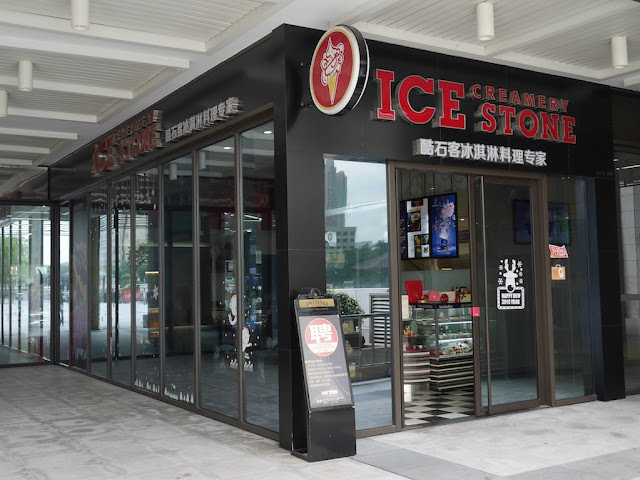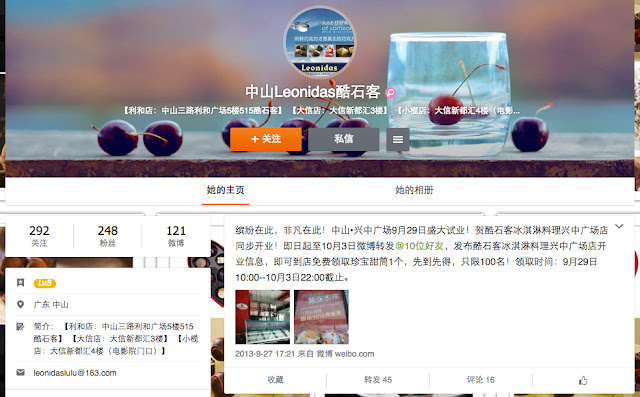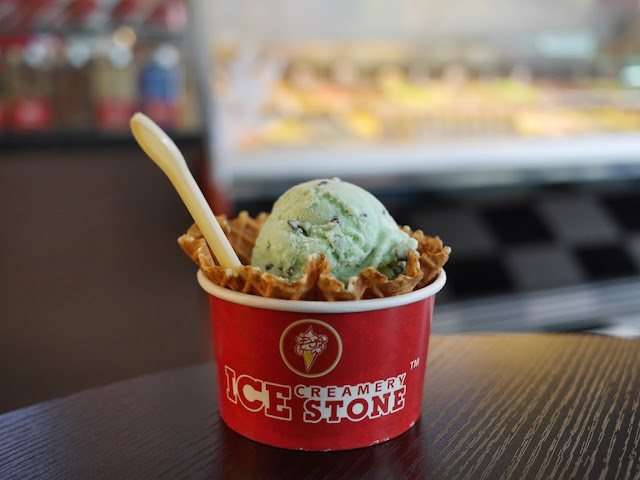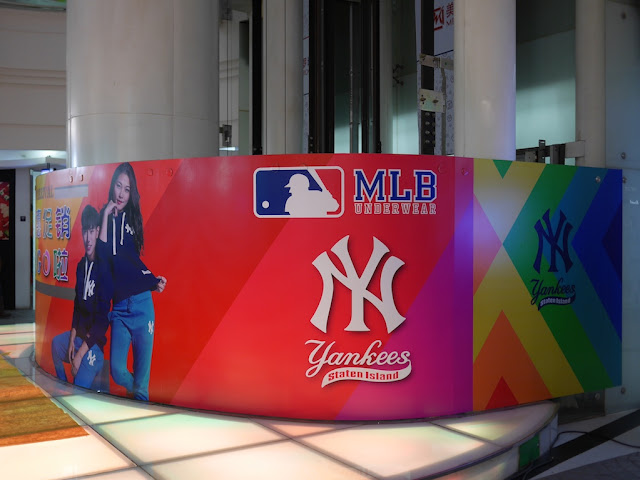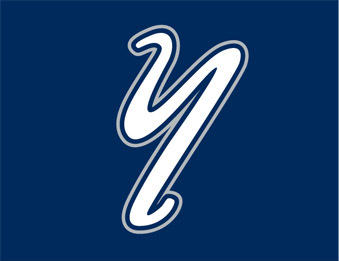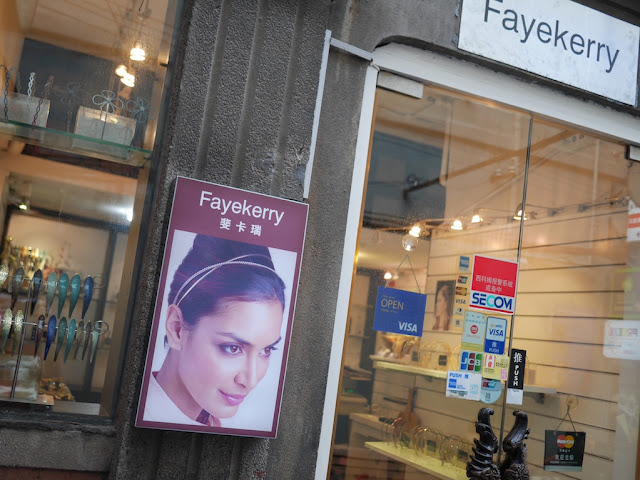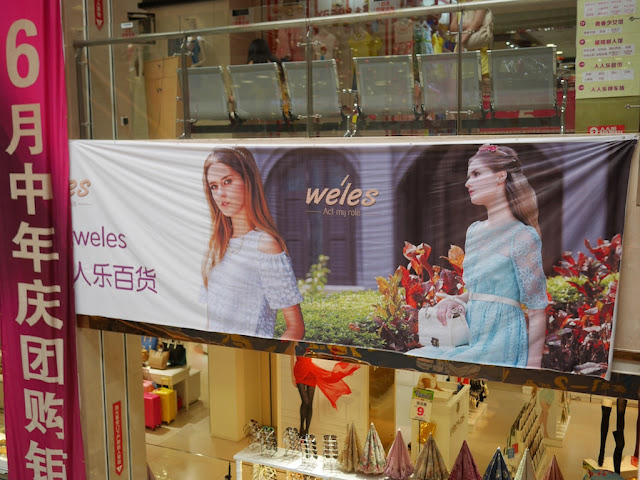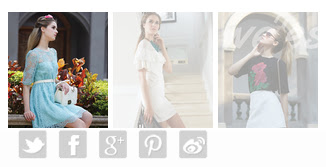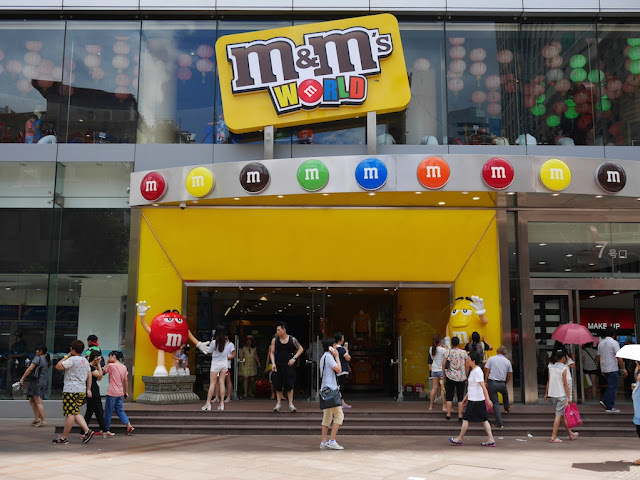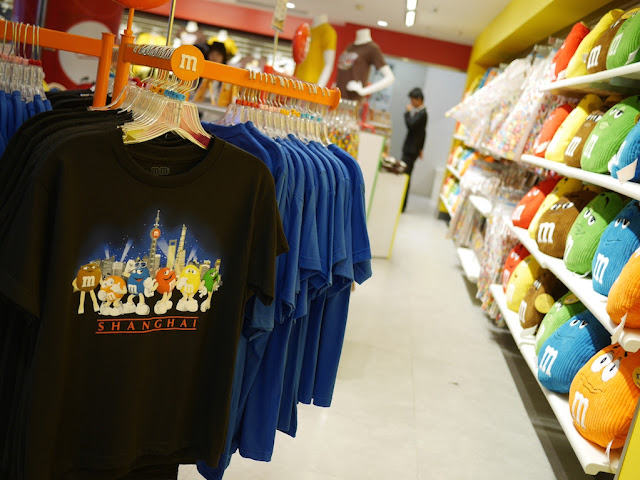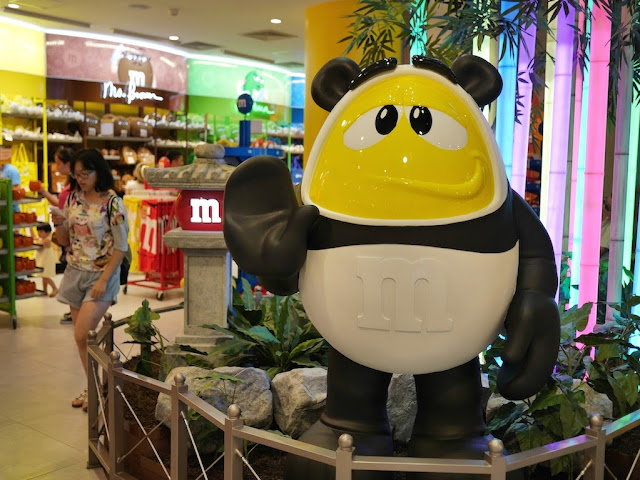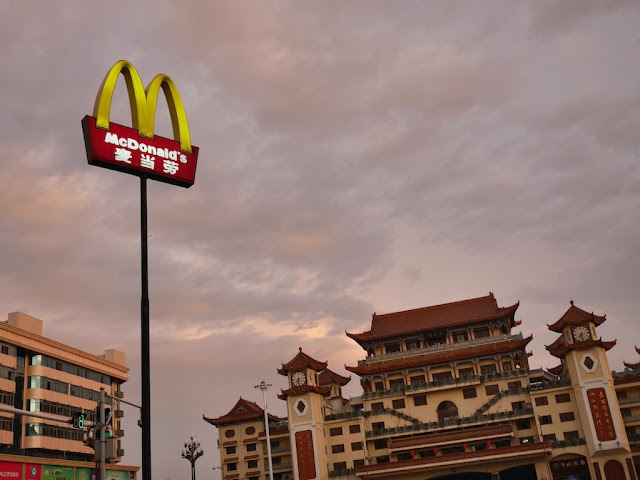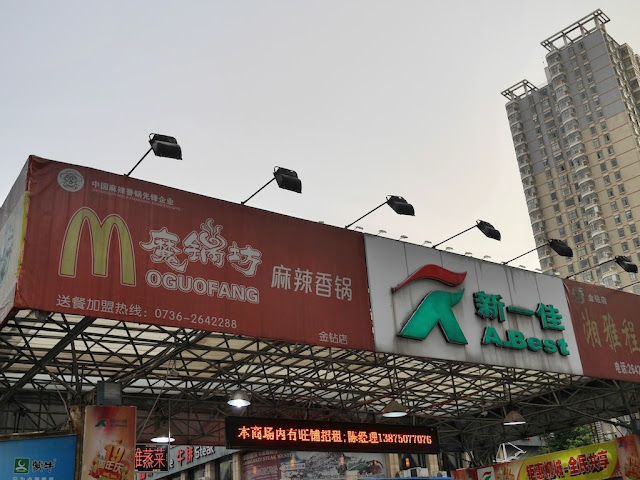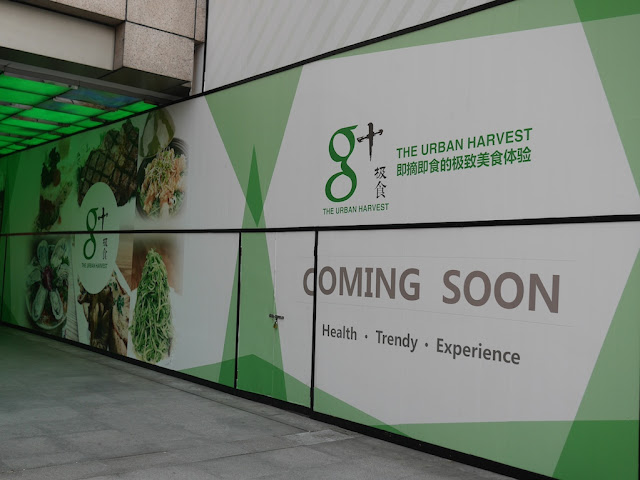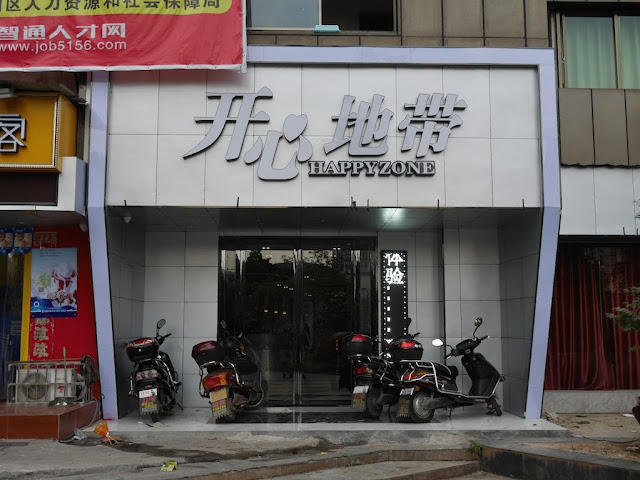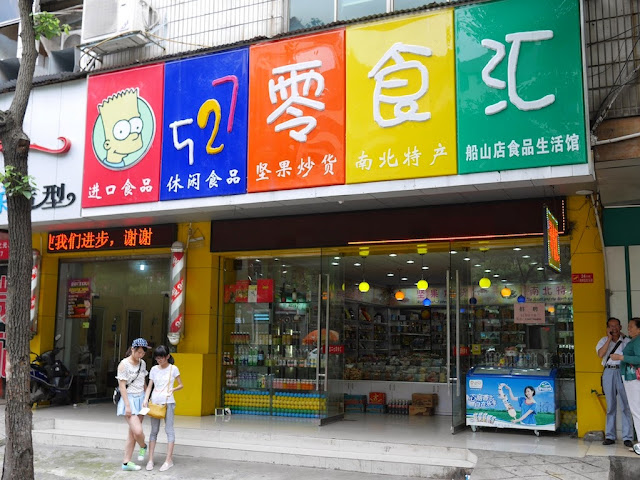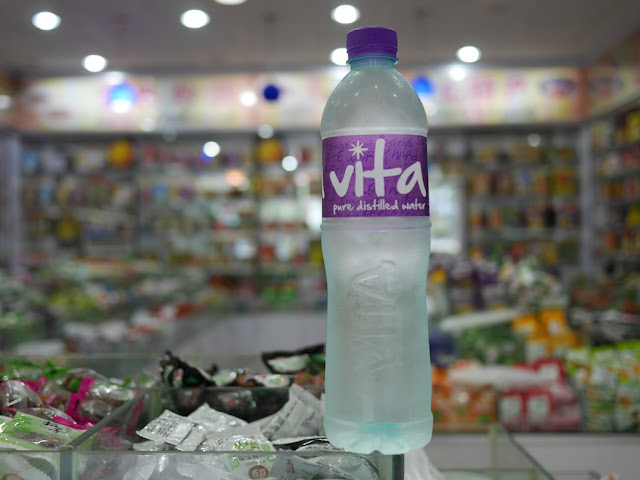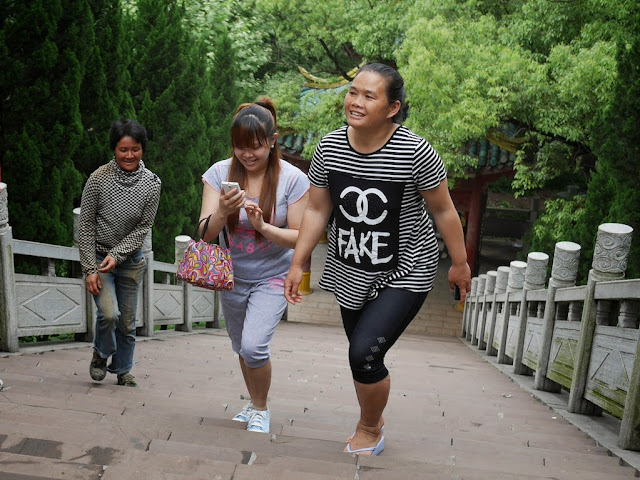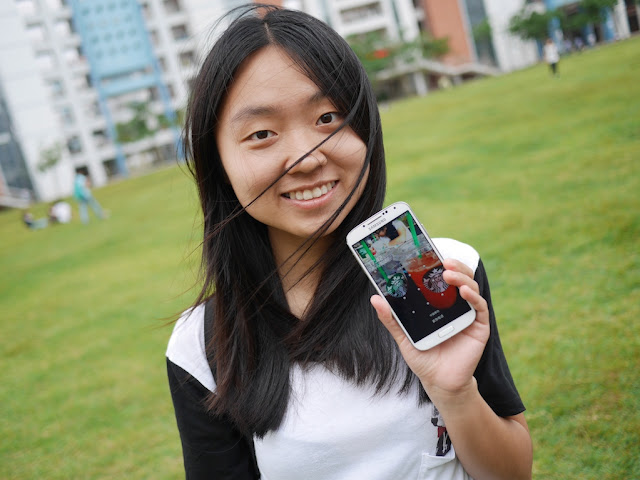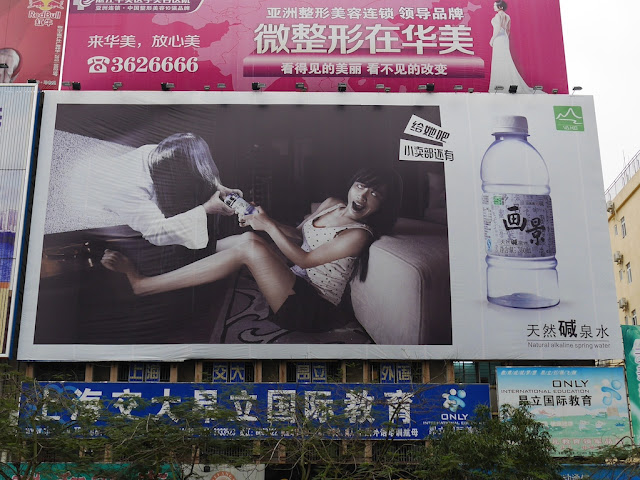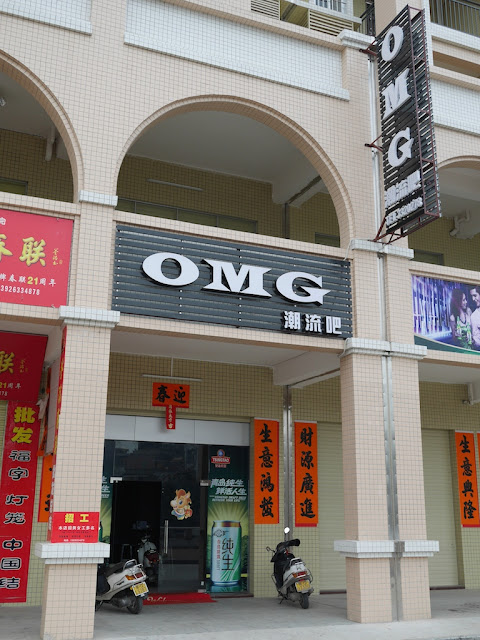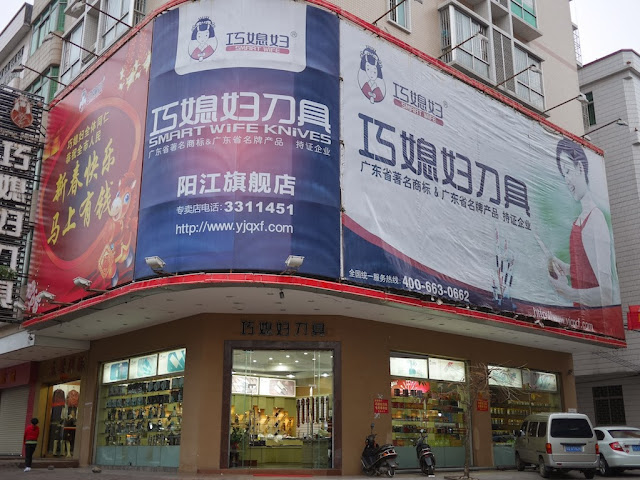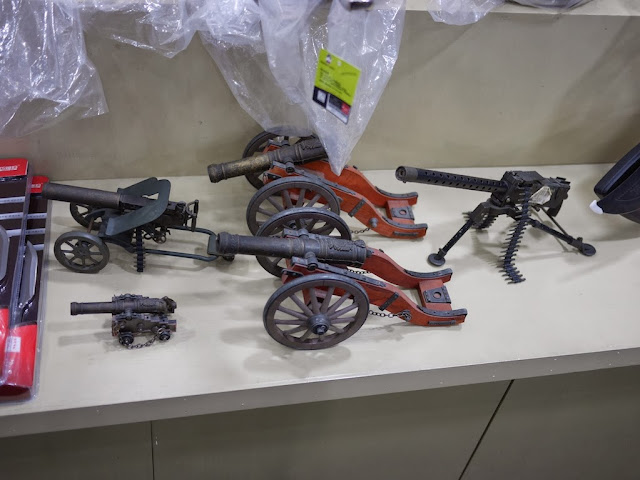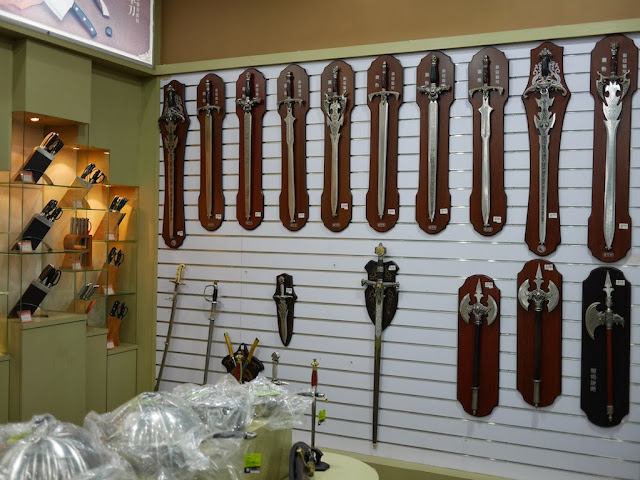U.S.-based Cold Stone Creamery opened its
first mainland China ice cream store near People's Square in Shanghai in 2007. Many more Cold Stone stores have since opened elsewhere in Shanghai and also Beijing, Hangzhou, Nanjing, Shenzhen, Suzhou, Tianjin, and Wuxi.
Recently during a walk, I was surprised to see their reach had spread to Zhongshan, Guangdong province, as well. The first time I briefly saw the store, though, something seemed off. When I passed by another time, it hit me. Despite the outside resemblance, the store wasn't actually a Cold Stone Creamery.
The name of the
Ice Stone Creamery store isn't all that seems to have been inspired by the Cold Stone Creamery. Here is the logo for the
Cold Stone Creamery in China:
The ice cream logos for Cold Stone and Ice Stone aren't exactly the same, but, like the names, the resemblance is rather remarkable. I could recognize the difference only after a direct comparison.
Ice Stone Creamery appears to have an
account on Sina Weibo — a Chinese online service roughly equivalent to Facebook and Twitter.
Curiously, "Leonidas" takes the place of "Ice Stone Creamery" in its name, although "Ice Stone" can be seen in some posted photos. The
most recent post, which is from September, 2013, shows a photo of the store I saw before it opened at the Central Power Plaza shopping mall. The account also mentions other locations in Zhongshan.
After recognizing the store for what it was, I felt compelled to give it a try to see how it compared.
In response to my questioning, the server proudly told me they were a local Zhongshan store. They offered a variety of flavors such as cantaloupe, chocolate, coconut, cookie, cranberry, durian, and green tea. For 18 RMB (about U.S. $2.88) I ordered a scoop of mint chocolate chip ice cream. Unlike the Cold Stone Creamery, the chocolate chips were already in the ice cream and other toppings were offered only after the ice cream was in a cup.
As I sat down with my ice cream (sans additional toppings), the remarkable placement of a trademark symbol next to the Ice Stone Creamery logo on the cup reminded me of a
7-Eleven lookalike store in Guizhou. But what I was most interested in was the taste of the ice cream, so I quickly dug in. And the taste truly puzzled me. It was difficult to notice any mint flavor and identify what I could taste. A few more not-especially-creamy spoonfuls left me rather disappointed, so I tossed the rest — something I rarely do with ice cream in China (or anywhere).
Last year, an American visited an Ice Stone store at another location in Zhongshan and
had a different experience:
The ice cream was great though! It came with toppings, a waffle cone and all! We will DEFINITELY be going back there again.
So perhaps I would have better luck with another flavor or Ice Stone store. Or perhaps Ice Stone hasn't maintained the quality of its ice cream. Or perhaps the person has a very different perspective on ice cream. I don't know. Whatever the case, like with the
McDonald's Year of Fortune Burgers, I don't feel especially motivated to give Ice Stone's ice cream a second try.
I don't know whether Cold Stone is aware of Ice Stone and whether there is much it has done or can do from a legal perspective. But I do know that I will later have more to share from China about other imitators and, thankfully, better ice cream.


